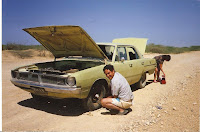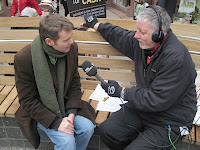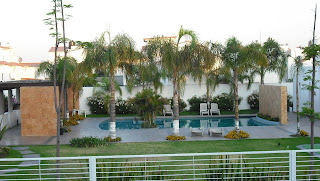 For the second time in two days, I find myself on the train heading from Liverpool Street station towards Essex. Today, I’m going to Prettygate Library in Colchester, to speak at the Essex Book Festival.
For the second time in two days, I find myself on the train heading from Liverpool Street station towards Essex. Today, I’m going to Prettygate Library in Colchester, to speak at the Essex Book Festival.I had allowed enough time to walk from the station, but when I arrive in Colchester, and I see the spitting grey sky, I jump into a cab. I arrive at the venue half an hour early so I while away the time in the nearby pub. The Jefferson Starship song We Built This City on Rock and Roll is playing on a loop on the jukebox, to about four regulars.
Sylvia, the library supervisor, welcomes me. She introduces me to Karen, the Audience Development Officer (what a wonderful title!) and the rest of the staff.
“Thanks for your Tweet,” Sylvia says as she takes my coat. “And we heard you on Radio Essex as well. We had a few people phone up after they heard you.”
 She takes me up to the staff room which looks out on to the car park. It is empty. I look up at the sky. It’s still grey and spitting. Will anyone come?
She takes me up to the staff room which looks out on to the car park. It is empty. I look up at the sky. It’s still grey and spitting. Will anyone come?Karen comes up to collect me, and she has a smile on her face. I take comfort from this. As Audience Development Officer, I figure she wouldn’t be smiling if she hadn’t managed to develop a decent audience. Indeed, when we come down the stairs, I see that the library is full.
Karen’s job of developing the audience, I see, is not limited to getting them to come, she also acts as compere. “I think we have some of the local book group here,” she says, and the whole of the front row cheers.
The highlight of many talks is often the Q&A session; today is no exception. All the questions are intelligent and thought-provoking. One man tells me how much the book had meant to him because of his own family story which, in different circumstance, had also taken him to Mexico. There is real emotion in his tale, and I’m not the only one to be brushing away a tear.
 |
| Pedro |
Back to London and I go straight to the premiere of the Colombian film, Los Viajes del Viento, or Wind Journeys, screened as a fund-raiser for Friends of Colombia for Social Aid. The film is stunning. I particularly appreciate it because the Colombian landscape is extraordinary and reminds me of the journey I did through Colombia with my friend Pedro (chapter 3 in The Mango Orchard) to La Guajira at the northern tip of South America.
I arrive home and check my e-mails. For the first time in nearly a year, I have a mail from… Pedro.













